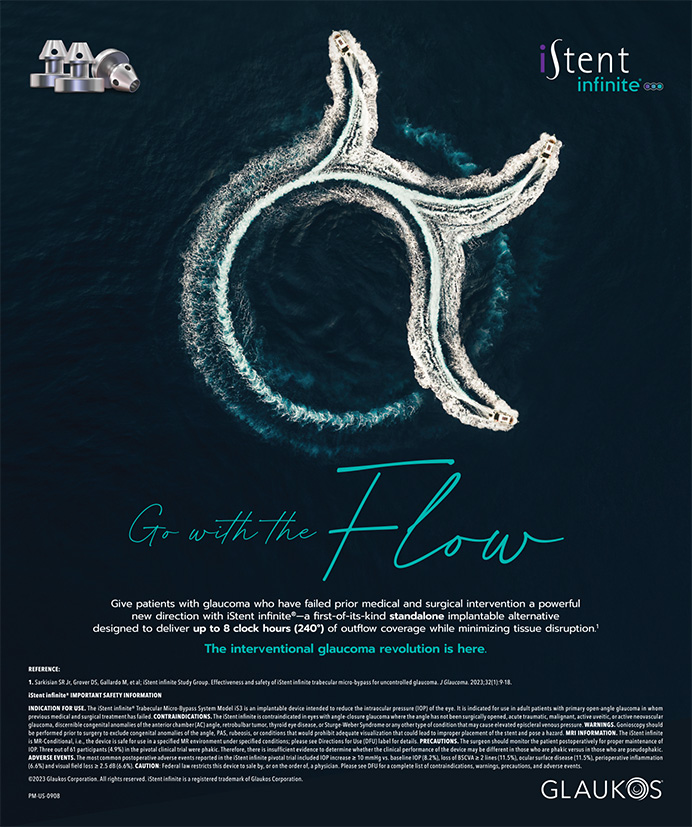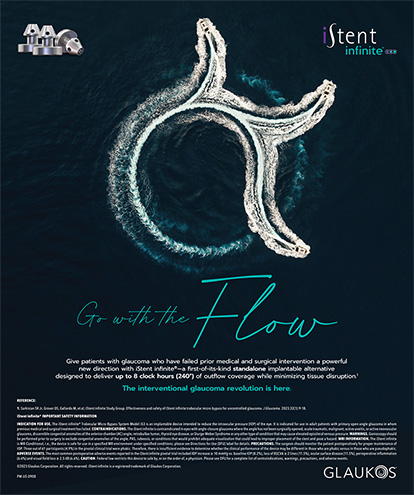Why did you choose the ophthalmology field? I enjoy the technical aspect of microsurgery, and in my subspecialty of cornea and refractive surgery, there is relatively quick patient recovery; I enjoy that instant gratification. I also appreciate that this is a relatively upbeat field, and we can make most people see better immediately—we are not dealing with chronically sick patients who are ill for 6 months or a year. You can measure your success; when you're finished, you've done the best that you can do, and you move on to the next problem.
What has been your most challenging case? My most spectacular case, from a refractive point of view, was in 1981 when I corrected both eyes of a -34 D myope, by combining phacoemulsification surgery with keratomileusis. I still see that fellow today—it's 20 years later, and he's driving a car without glasses.
Since you first entered practice after training, what has been the greatest advance/disappointment in cataract/refractive surgery? The greatest advance, since I first started practicing, has been the acceptance of the philosophy that eyes that don't see well without contact lenses or glasses have a disease and are not normal, therefore justifying refractive surgery as a legitimate treatment to allow people to see without glasses or contacts. When I started training in 1974, surgery was only for diseased eyes, meaning eyes that had cataracts or could see less than 20/20. So this shift in philosophy, which was based upon the work of Dr. José Barraquer, is undoubtedly the greatest single change that has occurred in refractive surgery. The disappointment relates to refractive surgery becoming a commercial venture, but I imagine that market forces always prevail.
What is the most positive/frustrating aspect of being a surgeon? The ability to help people and significantly affect their lives with improved vision is the greatest. It's truly one of the most memorable events a person can have. One will remember their marriage, and the birth of their first child, and in the top five events of their life, they will remember “being able to see better.” The most frustrating aspect for me is that people hear what they want to hear, and even despite legitimate attempts to explain the true risks and benefits of refractive surgery, some people are still demanding and expecting perfection. A very small percentage of people are not only unrealistic, they are unreasonable.
If you could send a message to the next generation of surgeons, what would you tell them? Strive for excellence. Too often when we begin in eye surgery, technical advances dominate the learning process. Always do the BEST job you can, both surgically and ethically.


